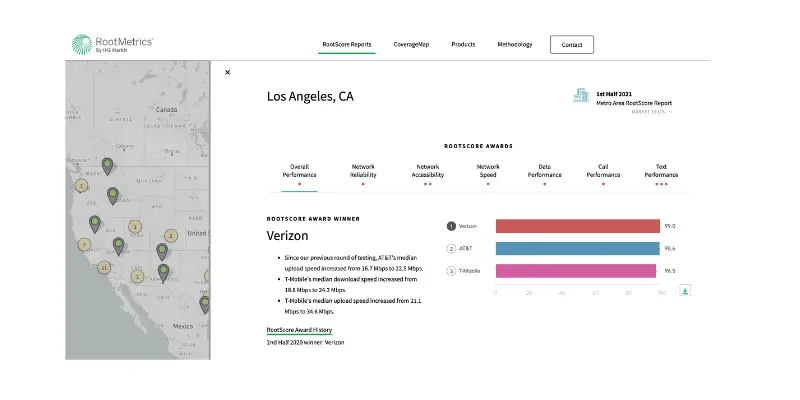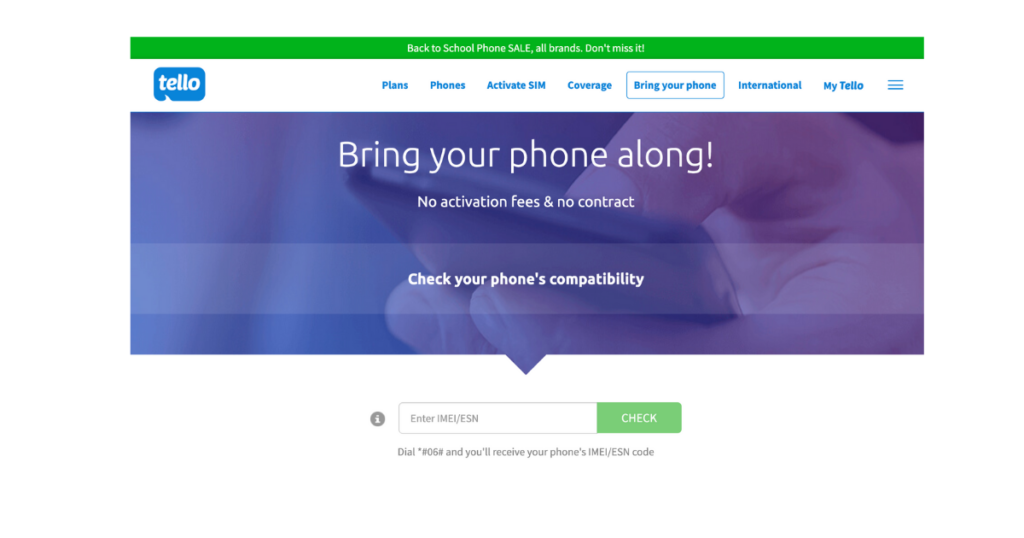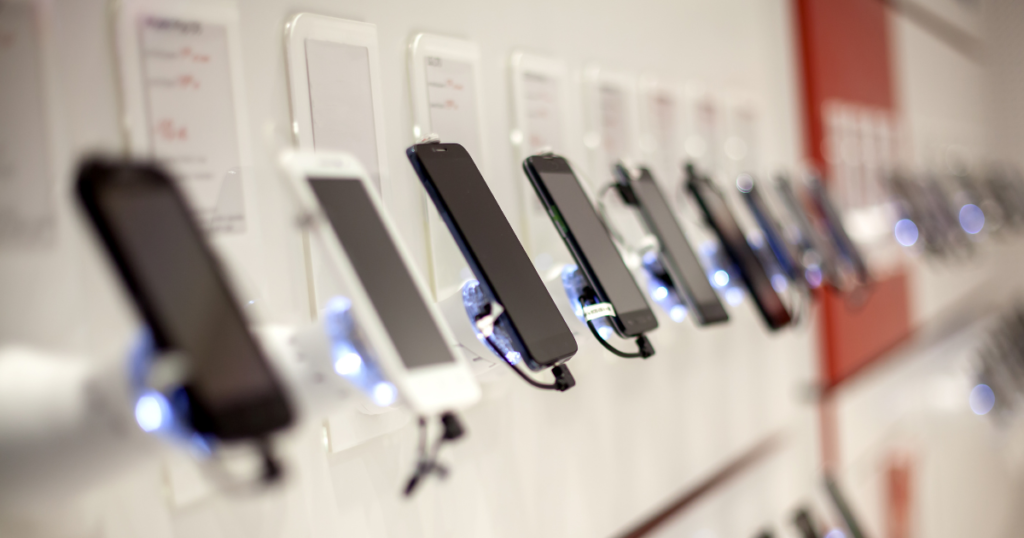There is no single phone plan that’s best for everyone, but finding the best one for you is pretty easy if you know the mistakes to avoid.
Over the past seven years, I’ve tested more than a dozen low-cost cell phone service providers.
1. Choosing the Wrong Network

- How fast are the data speeds?
- Do they have problems with dropped calls?
- Are text messages coming through?
2. Ignoring Low-Cost Phone Plan Providers
- Discount brands owned by major networks
- Prepaid divisions of major networks
- Mobile virtual network operators (MVNOs)
Discount Brands Owned by Major Networks
- Verizon owns Visible by Verizon
- AT&T owns Cricket Wireless
- T-Mobile owns Metro by T-Mobile
Prepaid Divisions of Major Networks
- Verizon Prepaid
- AT&T Prepaid
- T-Mobile Prepaid and Connect by T-Mobile
Mobile Virtual Network Operators (MVNOs)
Here are a few examples:
- Xfinity Mobile relies on Verizon’s network
- Pure Talk partners with AT&T
- Mint Mobile uses T-Mobile’s network
- US Mobile partners with Verizon and T-Mobile
3. Selecting a Plan That Doesn’t Meet Your Needs
Most people don’t need unlimited data, but unlimited plans are desirable because you don’t have to track your data usage throughout the month.
Read my full Visible review to learn more about the pros and cons.
Several other low-cost providers have unlimited plans for around $25 to $30 per month when you join a more traditional family plan. That’s really the price to beat for a good unlimited plan.
For people who use very little data, there’s the potential to save even more.
I mentioned the $15 Connect by T-Mobile plan earlier, but you can find plans with 1-2 GB of data for around $10 a month. Tello (T-Mobile network) is one option to consider.
IMPORTANT: There are tradeoffs with low-cost cell phone service providers. Some carriers offer few phone deals, limited customer support options and may slow your data during congestion.
4. Not Checking Phone Compatibility
If you’re switching cell phone service providers and want to keep your phone, you need to make sure that it’s unlocked and compatible.
To help with this process, every carrier has a compatibility checker on its website.
From your device, dial *#06# and you’ll receive your phone’s IMEI number. Just enter the code into the online tool to find out if your phone is compatible.
Here’s an example of what a compatibility checker looks like from Tello’s website:

If your phone isn’t compatible, you can either move on to another service or purchase a new phone that will work.
If you want to buy a new phone, keep in mind that some low-cost providers have great phone deals and others do not.
Compare prices and search for phone deals online.
You may be better off purchasing an unlocked phone from Amazon or eBay instead of buying directly from your new phone service provider.
5. Canceling Your Old Service Too Early
When you make the move to a new cell phone company, chances are you want to keep your phone number.
This is possible with all carriers through a process called porting. But if you cancel your old service prematurely, you could lose your number!
The FCC’s website says:
Do not terminate your service with your existing company before initiating new service with another company.
Instead, sign up with your new cell phone service provider and tell them that you want to keep your existing number.
You may have to provide your new carrier with some additional information, but they’ll take over and contact your current provider to make the switch happen.
For a smooth transition, I like to sign up with a new cell phone company five to seven days before my current plan expires.
Once the porting process is complete and you’re using the new service with your existing phone number, it’s safe to cancel your old service.
Most carriers will close your account automatically after a number transfer, but it’s a good idea to double check.
6. Skipping Out on Discounts & Perks
From my experience, a family line or group discount will likely impact your wireless bill the most.
So whether you get cell phone service from a major network or a low-cost provider, try to get on a multi-line plan to lower your monthly costs.
Other discounts vary by carrier. They include:
- Device discounts
- Employer discounts
- Senior discounts
- Auto pay discounts
The multi-month discount is also common with prepaid carriers.
For example, AT&T Prepaid has a long-running deal that gives customers a break on the price if they sign up and pay $300 for a year of service upfront.
As for perks, the major networks are more likely to offer freebies compared to low-cost providers.
At the time of this writing, Verizon’s most expensive plan comes with extras like the Disney Bundle, Apple Arcade, Apple Music and more.
No wonder that plan is $90 a month for a single line, plus taxes and fees.
I do not recommend that you sign up for a phone plan based on perks. But if you’re staying with a premium plan, you might as well take advantage of the extras.
7. Getting Too Comfortable
Big companies, including cell phone service providers, make a lot of money when you subscribe and never compare prices again.
That’s a mistake we’ve all made at one time or another.
You don’t have to try out all of the wireless providers like I do, but think about exploring new options every year or two.
Here’s an idea: The next time you’re thinking about upgrading to a new phone, spend about 30 minutes researching new phone plans.
A lot of people switch carriers at the same time they buy a new phone.
And don’t hesitate to bail on a wireless provider that you’re not satisfied with. There are too many options for you to stay with a service that’s not working out.
For more ways to lower your cell phone bill, subscribe to my YouTube channel!


I left AT&T because they wouldn’t give me a deal like they had for 19 years on a new phone and went to T-Mobile. Oh my God I got screwed I was told I was gonna get a promotion and the phone was $600. I paid the phone off and then my bills were triple. I finally had to get a hold of the corporate office to straighten it out. T-Mobile was not a wise move, but I do get Netflix and Apple free And my bill will be $70 a month after they straighten the mess out so it depends on what you’re looking for. I value the free streaming channels and the tax-free bill.